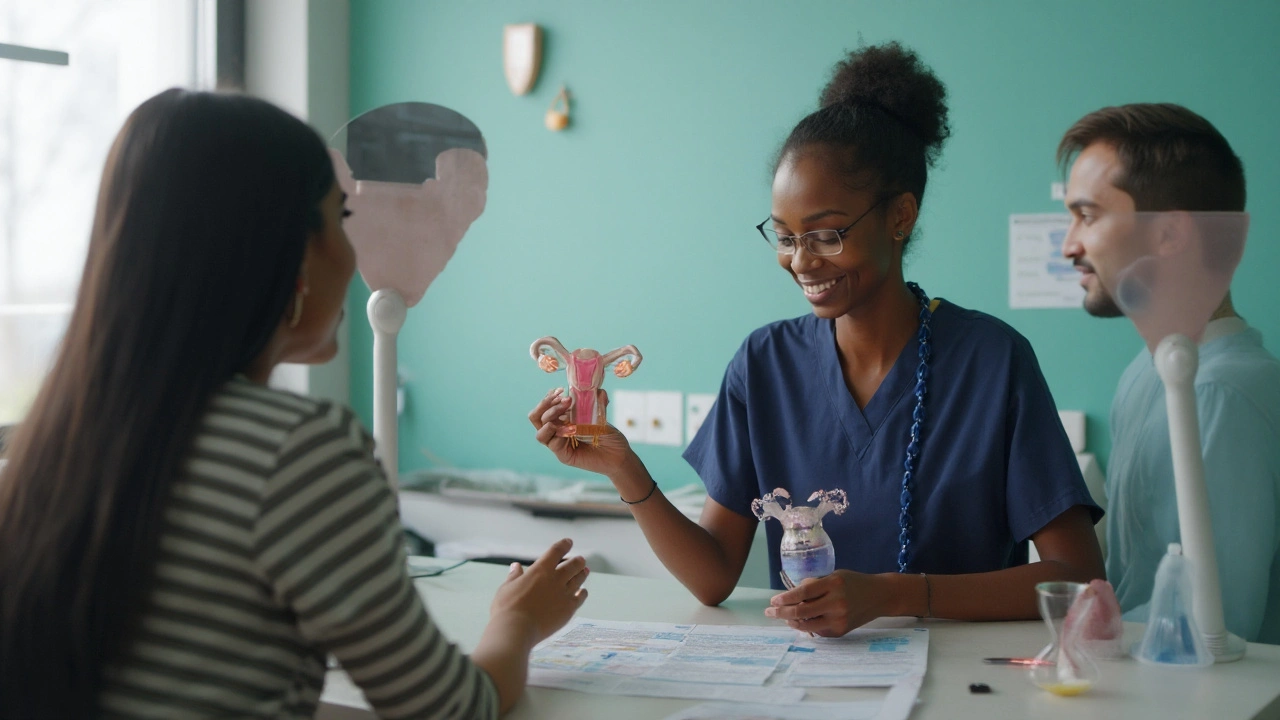Contraception and Infertility: What Every Couple Should Know
Trying to figure out how birth control fits into your plans for a family can feel confusing. The good news is you don’t have to guess. In this guide we break down how different contraceptives impact fertility, what to do if you’re struggling to conceive, and simple steps you can take right now.
How Birth Control Affects Your Fertility
Most hormonal methods—like the pill, patch, ring, or hormonal IUD—pause ovulation while you’re using them. That means you won’t get pregnant as long as you keep the method in place. Once you stop, your cycle usually resumes within a few weeks, but timing can vary. For some, especially those on the injectable Depo‑Provera, it may take several months for periods to return.
Non‑hormonal options such as copper IUDs or condoms don’t interfere with ovulation at all. If you’re planning a pregnancy soon, these can be a smoother transition because you won’t need a waiting period.
When Contraception Turns Into Infertility Concerns
Infertility is defined as not getting pregnant after 12 months of regular, unprotected sex (or six months if you’re over 35). If you’ve stopped a birth‑control method and haven’t conceived after that time, it’s worth checking in with a doctor.
Common factors that can delay conception include age, weight changes, stress, and underlying health conditions like thyroid disorders or polycystic ovary syndrome (PCOS). Your clinician might suggest a basic fertility work‑up: hormone tests, an ultrasound, and a semen analysis for the partner.
For couples facing infertility, there are many treatment paths. Lifestyle tweaks—like quitting smoking, reducing alcohol, and maintaining a healthy weight—often help. Medications such as clomiphene or letrozole can stimulate ovulation, while assisted reproductive technologies (ART) like IVF provide a more direct route when needed.
It’s also important to remember that many people conceive after a short delay once they stop contraception. Patience combined with a healthy routine can go a long way.
Bottom line: Your choice of birth control influences how quickly you can try for a baby, but it doesn’t usually cause permanent infertility. If you’re worried, talk to a healthcare professional early—especially if you have known health issues or are over 35. With the right info and a bit of planning, you can move from contraception to conception with confidence.

Contraception and Infertility: Myths vs Facts Backed by Science
Worried birth control hurt your fertility? Get science-backed facts on pills, IUDs, implants, and shots, plus timelines, checklists, and when to seek help.
Read more